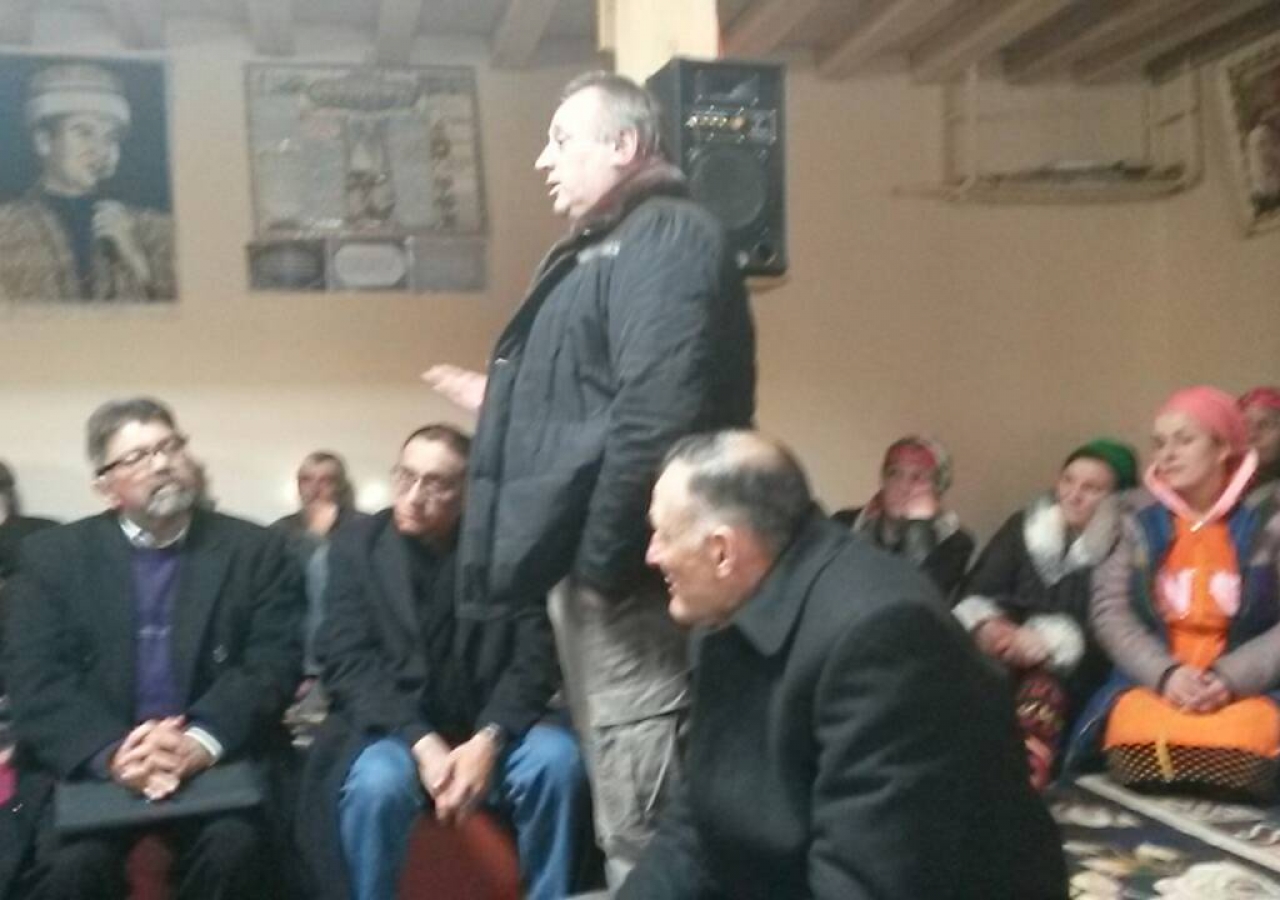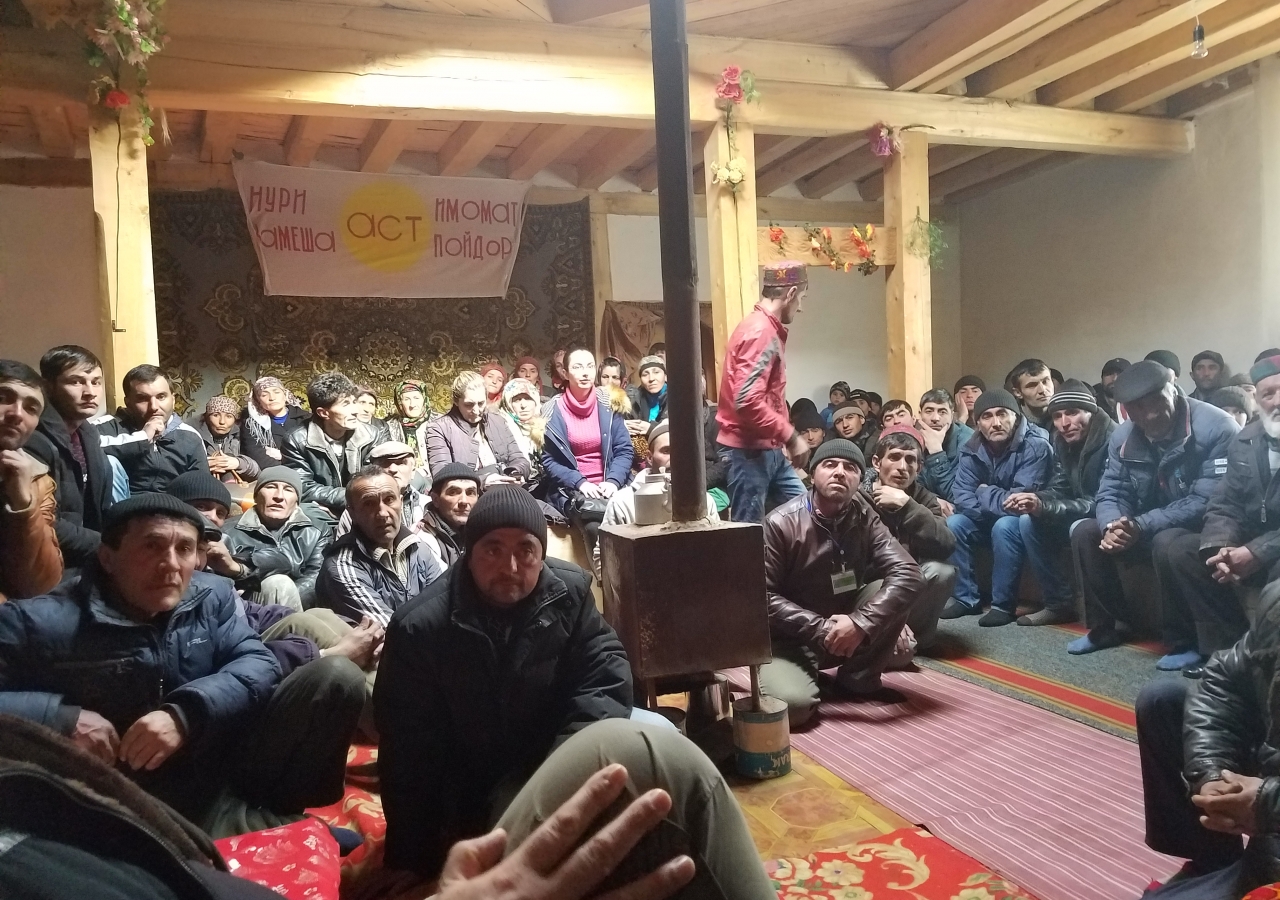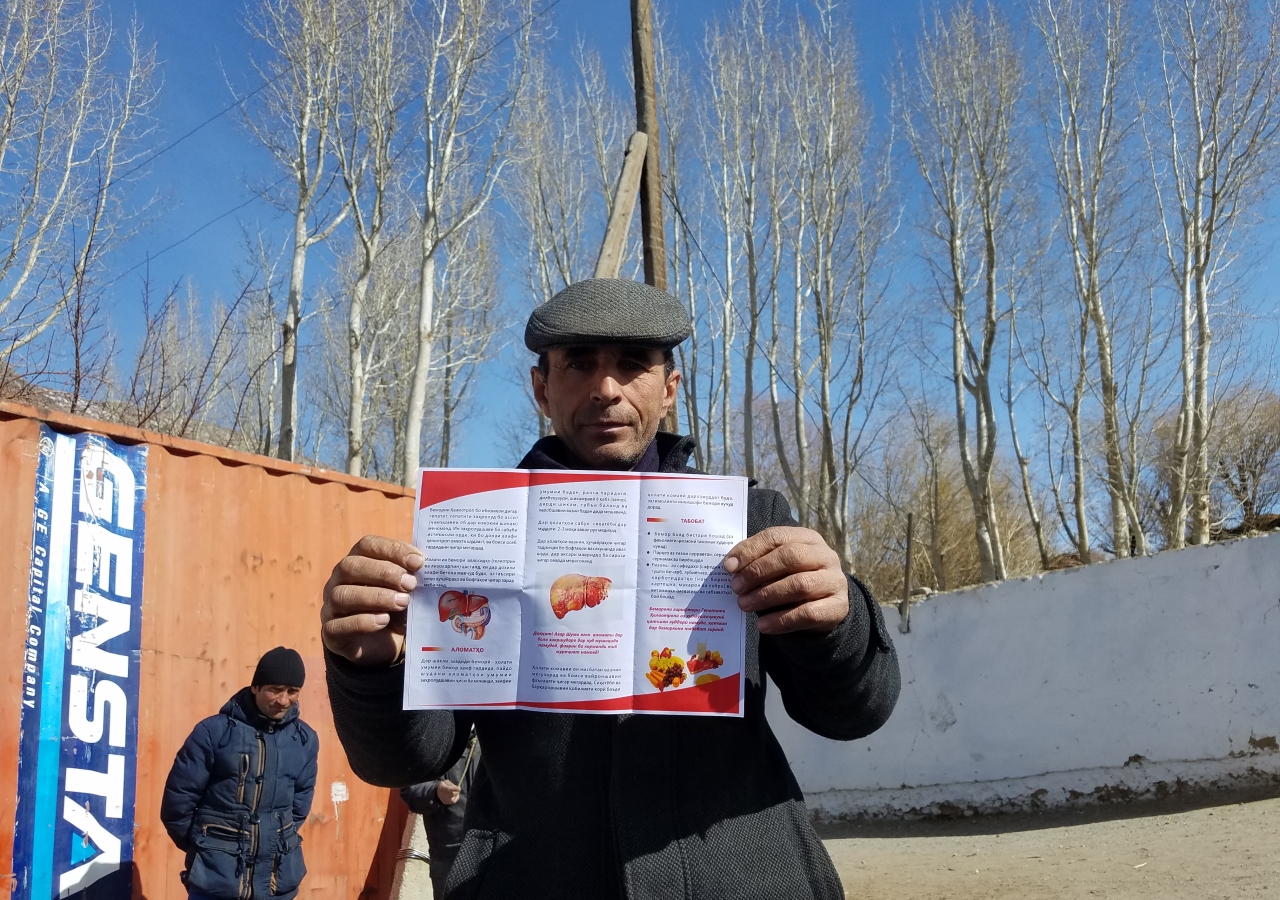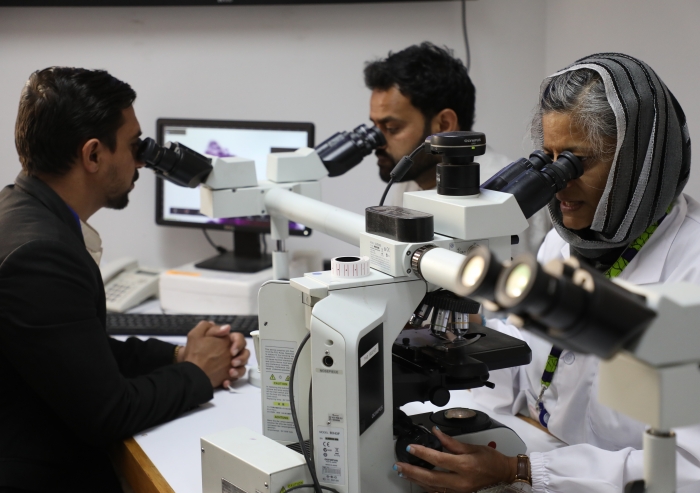The outbreak had resulted from grains that were harvested later than they should have been. “In some communities, people buy grains when the crops are available and then store them because of the weather conditions,” Dr. Ajani explained. “However, if the crops are harvested late, weeds start growing and get mixed with the grain, which can have serious health effects.” In their investigation, the team discovered that contaminated flour was used to make bread that is often shared as a community.
“When we learned of the outbreak, we provided technical guidance and assistance from the U.S.; however, additional help was needed in the local community,” said Dr. Mirza Kajani, a gastroenterologist and the National Chair of AKHB USA. “With several years of experience at institutions of global reputation such as CDC and an ongoing volunteer with AKHB and IHPA, Dr. Ajani was an obvious choice based on his professional experience and his involvement as a volunteer.” Dr. Kajani suggested that the pair take a short, high-impact trip to provide clinical guidance on the ground, and recommend public health measures that can help in the future.
To ensure they had as much information as possible, the doctors had several calls with AKHS-T to understand the scope of the problem before they left. They learned that 60 people had been admitted to Khorog Hospital, and there had been one death. Despite the local team’s best efforts, this was an opportunity to assess how the outbreak could be better managed considering the lack of resources.
Upon arriving onsite, the pair first engaged with a variety of stakeholders in Khorog to assess the outbreak. They then visited various villages and asked a series of questions to determine what may have caused the outbreak and understand the effectiveness of the current system. Together with the local team, steps were put into place to retrieve the contaminated grain and stop the outbreak. With the support of the Aga Khan University Hospital, the doctors provided the required guidance on a step-by-step basis. Finally, they spent time on health education and prevention.
“In some ways, the work we did was very basic, but through disease surveillance and primary health education, the community can identify issues and take action early,” Dr. Ajani explained. “I’m very grateful for the opportunity and hope that next steps are implemented and a long-term solution is put in place.”
The doctors continue to be in touch with the team in Tajikistan and are working to help strengthen the local public health infrastructure. “The collaboration between different groups is critical in achieving the goal that, in the future, the local community is able to prevent these outbreaks as much as possible, and have a protocol in place to better manage these issues going forward,” Dr. Kajani noted.
AKHS-T is most grateful to Drs. Ajani and Kajani for contributing their expertise in helping to manage this outbreak, making recommendations for future prevention and for their ongoing technical guidance and support.










